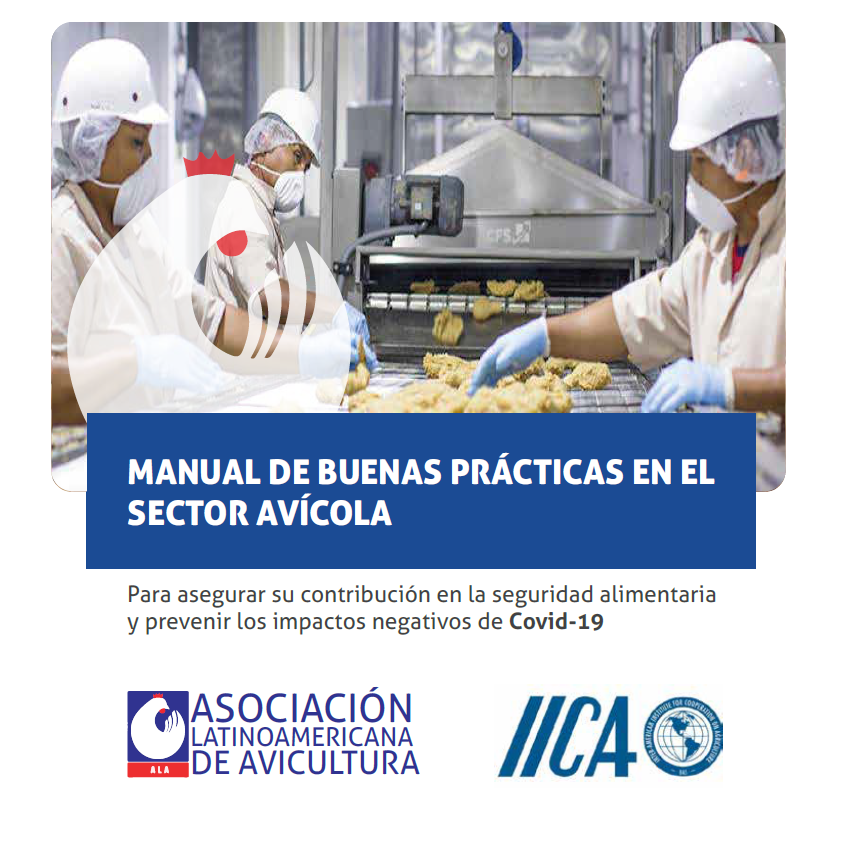The manual will guide countries in monitoring specific protocols and procedures to re-open the economy and borders.

San Jose, 17 November 2020 (IICA). The Inter-American Institute for Cooperation on Agriculture (IICA) and the Latin American Poultry Association (ALA) published a best practices manual for the poultry sector, aiming to strengthen the contribution of this activity to food and nutritional security in the region and to improve the sector’s resilience in response to the Covid-19 pandemic.
The manual was published to complement the efforts of Latin American and Caribbean countries and to offer recommendations to prevent and anticipate the potential negative impact of Covid-19 on the poultry industry – a source of quality jobs and income for the population.
The document is geared toward poultry farms (breeders and egg and chicken producers), as well as processing (classification and packaging of eggs, egg products and slaughtering) and distribution activities.
Ana Marisa Cordero, Manager of IICA’s Agricultural Health, Safety and Food Quality Program, explained that this initiative is part of a joint work plan of the Institute and ALA that is seeking to arm poultry producers with tools to increase sector competitiveness in strategic areas, such as emergency response and antimicrobial resistance.
Herbert Trenchi, Coordinator of the Scientific Technical Committee of ALA echoed Cordero’s thoughts, explaining that as countries take actions to normalize economic and social activities amidst the pandemic, it will become even more necessary to continue implementing and reinforcing biosecurity practices.
The manual is published in Spanish and English, with a soon to be released version in Portuguese. It will be distributed in Latin America and the Caribbean.
Download link: https://www.avicolatina.com/2014-01-28-14-10-31/biblioteca-virtual#
More information:
Institutional Communication Division, IICA.
comunicacion.institucional@iica.int











